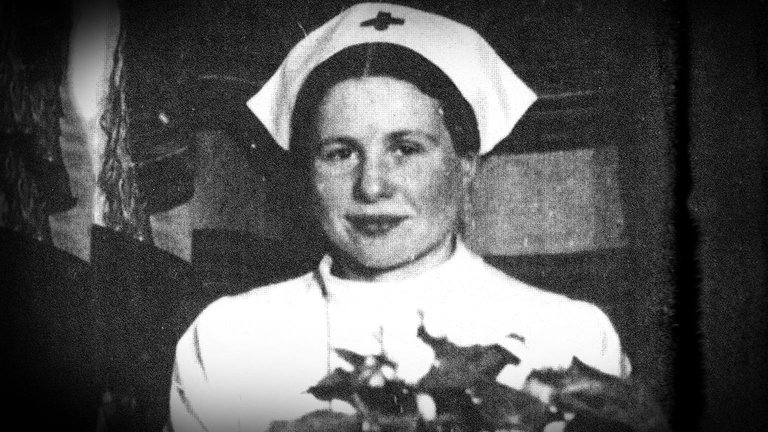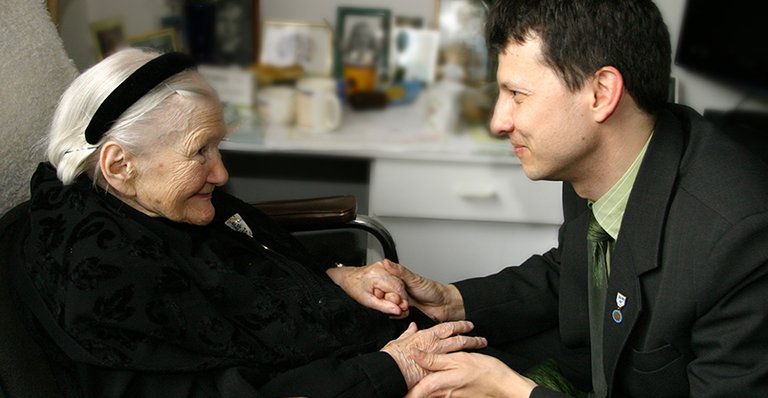Irena Sendlerowa (1910-2008) - actually Irena Stanisława Sendler, née Krzyżanowska, Polish social activist,
Irena Sendler was a social worker before the war. When the ghetto was established in Warsaw, the German authorities refused to allow social welfare to reach the Jews living there. However, they were allowed to provide medical assistance. Sendlerowa dressed as a nurse and together with her co-workers she wore food, medicines and money to the ghetto.
In 1942, she started cooperation with Żegota (the Council of Aid to the Jews), and after the decision to liquidate the ghetto, she began a large-scale campaign to save children from the ghetto. She saved about 2,500 of them. They were taken out of the ghetto and placed in Polish families, orphanages and monasteries. False documents were prepared and supported materially. Documentation of children escorted from the ghetto along with the money of Żegota Sendler was stored in jars

when she was captured by the Gestapo in 1943, despite torture, none of the secret information hit the Germans. Sendler was sentenced to death. The judgment, however, was not made after Żegota paid a high ransom for her. Until the end of the war, Sendler was hiding under a false name.
Mother, wife, friend
For many children of the Holocaust, Sendler was the third mother. If they knew about her. The second mother was a Polish woman, the one who brought up and replaced the first Jewish woman. They did not remember the youngest ones, and photography did not always survive. After years, they had a chance to find other relatives, or at least get to know their story - thanks to a small blonde with blue eyes and her famous letter. The children loved Sendler, they trusted her. When, just after the war, she took care of a girl from Auschwitz, she asked her to draw a little angel. The later biographer of Sendlerowa Anna Mieszkowska called her "Angel of the Holocaust."
A Righteous Among the Nations
Others say it willingly, always warm, with a smile. The Order of Smile, granted by children, was the most important distinction for her, along with a letter from the Holy Father John Paul II and the title of Righteous Among the Nations. Besides, from the titles, medals and medals (and there were many of them), she preferred, for example, that a school would name her. The first one was in Germany, there are several dozen of them in Poland. Even before Sendler's death, the prize of her name "For Repairing the World" was funded for teachers who teach and raise in the spirit of tolerance.


The students of Uniontown, Kansas, who wrote the play "Life in a Jar" in 1999, wrote for the story of a social worker. Watching over the project of prof. Norman Conard wrote:
When we left the Warsaw airport on a rainy day, we had Irena's face in her eyes that sent us greetings from the window. Tears flowed down her cheeks. We went to Poland to understand what this heroic woman was doing, and we returned with difficulty imagining her courage when she entered the ghetto and led the children away.

this is only part of the knowledge and history of this brave woman, I invite you to read more on the internet
You are probably unaware of the fact that tag #polish is used by Polish community. We really don't like posts in other languages and it looks like spam in our eyes. Don't worry - it's a common mistake. In the name of Polish community we kindly ask you to edit your post and change or remove tag #polish (better option is #poland).
ok sorry men